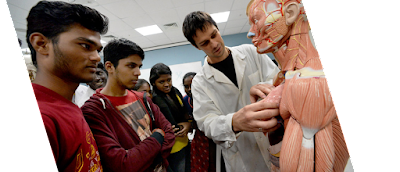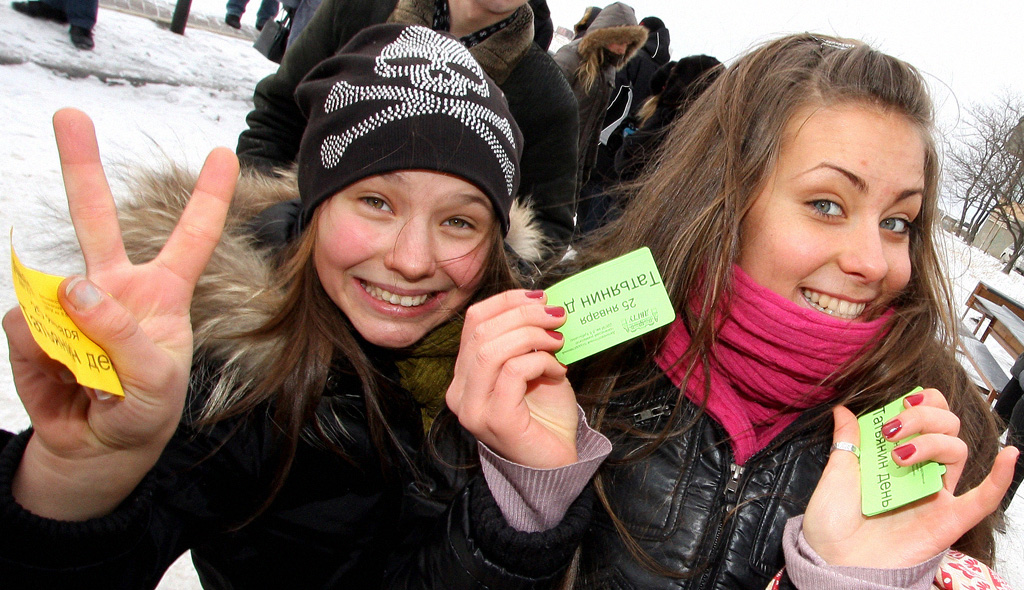School of Medicine -Far Eastern Federal University.
Founded in 2021, it succeeds the School of Biomedicine in medical training in the Far Eastern Federal University. Medical instruction in FEFU began in 2013, and English-medium instruction began in 2016.
Aside from Russian-medium programs, we offer an English-medium program "General Medicine". Currently, we teach around 500 students on this program.
We are a public school, that means we are funded and directed by the Russian Governement and follow Russian state educational standards.
Curriculum duration: 6 years
Degree awarded on graduation: Russian Specialist Degree (This degree is recognized as M.D. in Russia and post-soviet countries (CIS)./ as MBBS (Bachelor of Medicine, Bachelor of Surgery) in most countries)
Language of instruction: English for the whole duration of the program (all 6 years)
Entrance Exam: Required (Chemistry and Biology); Russian language is not required for the International "General Medicine" program
Clinical Facilities:The School of Biomedicine has access to a number of facilities, including the FEFU Medical Center
Why FEFU & School of Medicine?
ADVANTAGES For INDIAN STUDENTS of Studying MBBS in School of Medicine at Far Eastern Federal University (FEFU) RUSSIA.
FAQ about School of Medicine at Far Eastern Federal University (FEFU)
Is your university internationally recognized?
Our University is recognized by the WHO, QS ranking (we are within top 500 world universities), so upon graduation you will be able to work anywhere in the world. Although, you will have to pass a local licensing exam alternative (excluding post-Soviet countries (CIS), which don’t require this).
For example, FEFU is present in the World Directory of Medical Schools and is recognized by the ECFMG, so our graduates are eligible to pass USMLE.
What is the degree awarded upon graduation from your program?
The degree awarded to our graduates after 6 years of the "General Medicine" program is the Specialist degree. It is recognized as MBBS (Bachelor of Medicine, Bachelor of Surgery) in most countries. This degree is recognized as M.D. in Russia and post-soviet countries (CIS).
How many foreign students are currently studying at your program?
Currently, we have over 500 foreign students on our international programs from different countries.
Where is your city situated? How far away is it from Moscow?
Our city, Vladivostok, is the capital of Primorsky Kray of Russia. Distance from Moscow to Vladivostok is ~7000 km, which makes up to 9 hours of flight. Our time zone is UTC+10.
FAQ About Education Process
When will classes start this year?
The autumn semester is planned to start on the 13th of September this year. It is advised to arrive to Vladivostok between 6th and 12th of September (after the Eastern Economic Forum is ended). But for the fresh 1st year students, classes are usually delayed for ~1-2 weeks to give them some time to arrive and finish all formalities and to start all at once.
In which language do you teach foreign students?
Our program has full English medium, all instruction is in English, for the full term of education (all 6 years). We do not switch to Russian language instruction in the final years of education. All academic communication between teachers and students is in English as well.
We do have Russian language as the part of our curriculum though (i.e. our students learn Russian language), but it is taught in English by some of our best teachers, so don’t worry too much.
It is actually quite helpful to know Russian, as it opens wider possibilities for doing clinical training in Russian hospitals.
For how many years do you teach students on your program?
All medical education in Russia lasts for 6 years, it's both theory and practical training. A significant part of the practical clinical training is done during each summer.
Will classes start online or offline in the next semester? Do you do online education?
Currently, we plan to start the next semester as usual, in the offline mode. If the epidemics gets worse significantly, we will switch to the online mode. The online mode will also be available for students who are not able to arrive in time for classes due to closed borders or flight cancellation.
Our default platforms for online education are Microsoft Teams and BlackBoard LMS.
Do you provide any scholarships for students?
Unfortunately, no scholarships are available for contract students, except for sports scholarship. Although there is a possibility to get an abroad hospital or scientific training (short-term internship) for some our best performing students.
The only way for a foreigner to study for free, aside from being funded by a third-party organization, is to switch to the Russian mode of instruction while having excellent academic performance.
Do you have any specific dress code for students?
The dress code is white lab/doctor’s coats. There are some minor restrictions, like no open shoes and no hats inside buildings.
What happens if I fail any exam in the end of the semester? Will I be expelled?
If a student fails any exam, he/she will not be expelled immediately. The student can continue studying in the next semester as normal; however, it will be necessary to pass exams for failed subjects during this semester. There will be 2 attempts for each such subject, usually in Marh-April and October-November.
What is the usual mode of studies in your university? How many classes are there per day, how long is each class, etc.?
Each class is 1h30m with a 10 min break in between; usually students have 3-5 classes per day.
Usually, classes start at 8:30 am or 10:10 am (local time, UTC+10).
University working/studying days: Mon - Sat (6 days/week).
How many students are there to be in 1 group/class?
Usually, we have 15-20 students in a group for practical and lab classes; lectures are given to the whole year (for all groups simultaneously).
Tell me about the clinical training in your university
The most significant part of the clinical training is done every summer when students are sent to hospitals to work with patients under supervision of teachers-doctors. The complexity of practice, duties & responsibilities of students increase every year. That means it is done every year.
The part of clinical training for some subjects is also done during study semesters.
If you are willing to do summer clinical training in Russian, it is possible. There are no limitations by student number and it’s free of charge (you can even get a part time job and earn money by hospital work).
If you are willing to do summer hospital practical training with English-speaking patients, it is advised to do in your home country. In this case a FEFU will sign a contract for your training with a hospital of your choice and provide it with practical training curriculum.
What is your study year structure? How many semesters and vacations do you have per year?
(please mind that these dates are approximate; they can slightly change depending on the calendar)
Autumn semester: Sep 13 – Dec 31.
New Year holidays: Jan 1 – Jan 9.
Additional classes: Jan 10 – Jan 23.
Winter exams: 3 weeks in Jan-Feb.
Winter vacation: Feb 10 – Feb 23 (2 weeks).
Spring semester: Feb 24 – June 20.
Summer exams: June 20 – July 15.
Summer practical training: July 15 – Aug 10.
Summer vacations: Aug 10 - Sep 12.
How many subjects per semester do you have?
Usually, we have around 10 subjects per semester. Studying is done according to Governmental educational standards, and that's why curriculum is mostly same in all Russian medical universities. Some details may vary, like which semester has the subject.
Some important subjects last for 2-3 semesters, like Anatomy.
FAQ About Admission & FEES
Admission
How to apply?
To apply for our International programs, please send the following documents
1. Your foreign passport copy/scan;
2. Academic certificate of your previous education (if it’s not in English or in Russian, it should be translated to one of these languages).
We also have an application fee of 3500 Russian Rubles; the admissions office will guide you on how to make this payment.
Indian citizens will also need to provide a NEET certificate.
I am from India. Do I need NEET for applying?
Yes, we do require a NEET pass certificate from our Indian Students. It is not the requirement of our university though, but one of the Indian Medical Council.
We don't have a NEET result threshold for admission though. You can also start the admission procedure before you get a NEET certificate, but we will need it later for sure.
What is the deadline for applications?
All admission procedures should be over by the 31st of August, so the best date to apply is before the 20th of August.
Is Russian language necessary for admission?
No, Russian language knowledge is not necessary for admission. Entrance exams are Biology and Chemistry only, and they both are held in English language. That means we don't have Russian as an entrance exam.
All instruction and academic communication is done in English, for the whole term of education (e.g. 6 years in case of the General Medicine program).
Do you accept transfer students from other universities? How to apply for a transfer?
Yes, we do accept transfer students from other universities. Please see this page for detailed instructions.
Fees
How much does it cost to study your programs?
Tuition fee for our programs for 2021 is as follows:
General Medicine specialist program (6 years): 295 000 Russian Rubles per year
Molecular Biotechnology bachelor program (4 years): 265 000 Russian Rubles per year
What are the accommodation fees?
Accommodation fees in campus hostels wary between 4400 Russian Rubles/month for a 2 share room, and 3800 Russian Rubles/month for a 4 share.
This makes a total of approx. 44 000 Russian Rubles per year, excluding summer vacation (approx. equivalent of 600 USD).
Mess is not included in the accommodation fee.
Do you have any other fees? Any hidden fees?
All foreign students are required to purchase the medical insurance, which costs ~5000 Russian Rubles per year. It covers most issues.
Upon arrival, all international students need to get a multi-entrance students visa for 1 year, and extend it annually for the whole duration of education. Visa fee is 2100 Rub. per year.
Medical students need to pass annual medical checkup to be allowed to have hospital classes, which costs approx. ~8000 Rub. (exact cost may wary).
Due to the ongoing COVID-19 pandemics, all students arriving from abroad will be required to pass an additional PCR test for SARS-Cov-2 virus infection. It costs 2000 Rub.
Can tuition fee be paid in installments?
Yes, it is possible, you can pay tuition fee by semesters. I.e., tuition fees can be paid in 2 installments, before each semester starts (spring semester is paid before the 25th of December, the next autumn semester is paid before the 1st of July).
The very first payment (1st semester for fresh 1st year students) should be paid within 3 days after signing a contract with the University.
It is also possible to pay in smaller installments upon a special request.
FAQ About Accommodation and the campus
Do you provide hostels/dormitories for students?
Yes, all students from a city other than Vladivostok can accommodate in a university dorm. All foreign students get accommodation in campus hostels.
Are your hostels located in the university campus?
Yes, there are 25 hostel buildings in the FEFU campus. All foreign students get accommodation in campus hostels.
We do actually have a few hostels in the downtown outside of the campus, but foreign students usually don't get accommodation there.
How far are hostels from study buildings?
Maximum distance from hostels to study buildings is an equivalent of 15-20 min on foot. Some hostels are closer. We also have a free bus line inside the campus with an interval of ~10 min.
What kind of facilities do you have in the campus?
Aside from all necessary educational and administrative facilities, the campus has cafes & cafeterias, groceries, pharmacies, post office, bank offices & ATMs, medical center, stationary goods, sport facilities, and other.
How good is security in your campus?
It is good. We have our own University security service, and its members are present in every university building. Also, we use pass system, that’s why no strangers can enter hostels or study buildings without permission. Students can address security at any time. We also have emergency security service phone number available 24/7. A police station and a fire emergency station are located near the campus.
What kind of rooms are in your dorms? What kind of equipment is available?
We provide 2-share, 3-share and 4-share rooms (the latter one is a 2-room suite). All rooms have a bathroom. Rooms are equipped with all necessary furniture, refrigerators, etc. Common kitchens are available in hostel buildings (at least 1 per floor). Usually, you can’t choose a room type, but you can choose your neighbors upon getting a room. It will be possible to change the room or hostel approx. 1 month after the start of the semester.
Do you provide Wi-Fi in hostels?
Yes, we do provide students with free Wi-Fi access in all hostels and other campus buildings.
Please tell me about food facilities. Is mess included into the fee?
The campus has many canteens, cafeteria etc., mostly offering European food.
Mess in not included in the accommodation fee.
Students can go to cafeteria in the campus, order food delivery from the downtown, of cook themselves in common kitchens in hostels. The campus has shops/groceries for supplies.
Cooking in rooms is not allowed; students can cook in common kitchens which are on every floor of every hostel; there are ovens, microwave oven, etc.
Are hostels same or separate for boys and girls?
Hostels are same for boys and girls; rooms are separate.
FAQ About Other questions
What is the climate in your city? Is it cold in winter?
Climate in Vladivostok can be quite cold in winter, as everywhere in Russia. Students usually arrive for the first time during the fall season, so it's necessary to be prepared for winter.
In winter, temperatures can go down to -15C -20C degrees below zero; it's windy and cold in general. Proper winter clothing is required (down-padded coat, hat, gloves, winter boots, etc.). All campus buildings and hostels are centrally heated though, it’s comfortable in hostels and in study buildings in winter. In summer it's +25C, humid and warm.
Can I get a job while studying in FEFU?
Student visa allows foreign students to work while studying in Russia; a job permission may be required though. Please mind that getting a job locally will most likely require at least some knowledge of Russian language.
The main requirement - your job shouldn't interfere with studying.
Upon graduation and passing Russian Medical Licensing exam, you will also be able to work in Russia as a doctor, although you will need to switch your visa to a working visa.
Can students travel home during vacation?
Yes, students are allowed to travel during holidays since they get a multi-entrance student visa upon arrival. The only requirement is to return before classes start and extend this visa 2 months before it expires.







